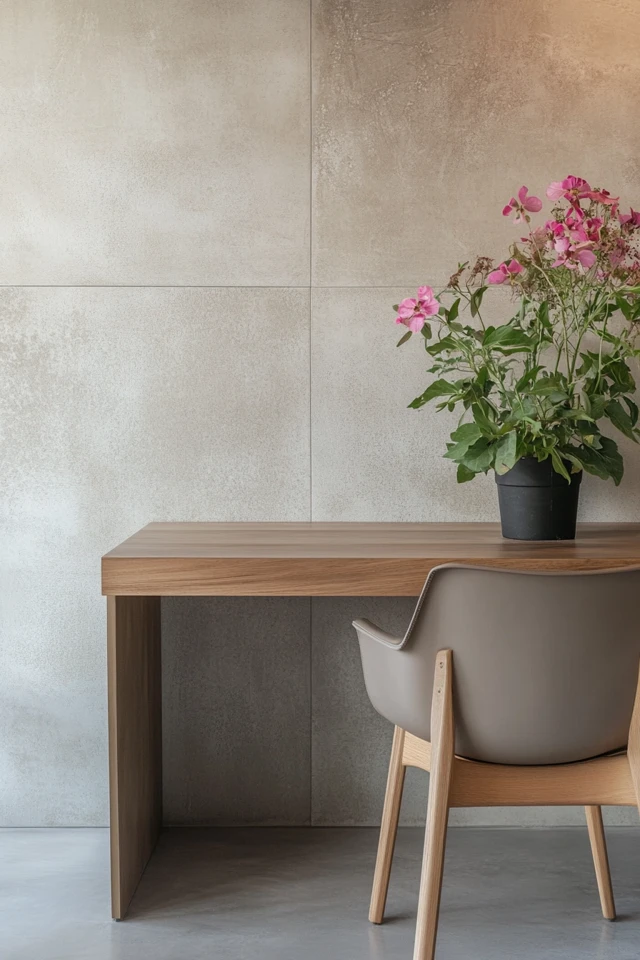A minimalist workspace is more than just a design choice—it’s a tool for boosting productivity and focus. By eliminating distractions and organizing essentials, you create a clean, calm environment that helps you stay on task and reduces stress. A minimalist approach isn’t about having less; it’s about having what matters most.
I first adopted a minimalist workspace during a particularly hectic project. Papers piled high, random office supplies scattered everywhere—it was a recipe for distraction. Once I decluttered, streamlined my setup, and focused on functional decor, my productivity soared. My desk became a space where I could concentrate and feel calm, even on the busiest days.
In this guide, I’ll walk you through how to create a minimalist workspace that not only looks great but also improves your efficiency and well-being.
Why a Minimalist Workspace Works
Benefits of a Minimalist Workspace
- Reduces Distractions: A clean desk means fewer visual interruptions.
- Enhances Focus: Prioritizing essentials keeps your mind clear.
- Promotes Organization: Everything has its place, so you spend less time searching.
- Encourages Calm: Simplicity creates a sense of peace and control.
1. Start with a Decluttered Desk
A clutter-free desk is the foundation of a minimalist workspace.
How to Declutter
- Remove everything from your desk and sort items into “essentials” and “non-essentials.”
- Only put back items you use daily, like your computer, notebook, and a pen.
- Store less frequently used items in drawers or cabinets.
Pro Tip:
Adopt a “one in, one out” rule to maintain a clean desk—when you bring in something new, remove something old.
2. Choose a Neutral Color Palette
A calming color palette helps set the tone for focus and productivity.
Best Colors for a Minimalist Workspace
- White or Light Gray: Creates a clean, spacious feel.
- Beige or Taupe: Adds warmth while staying neutral.
- Muted Greens or Blues: Bring a touch of nature for a calming effect.
Styling Tip:
Stick to two or three complementary colors for furniture, accessories, and decor to maintain a cohesive look.
3. Invest in Multi-Functional Furniture
Multi-functional furniture helps you save space while keeping your workspace organized.
Ideas for Multi-Functional Furniture
- Standing Desks: Adjust for sitting or standing to improve ergonomics.
- Desks with Built-In Storage: Keep supplies hidden but accessible.
- Filing Cabinets That Double as Side Tables: Provide extra surface area and storage.
Example:
A sleek white standing desk with hidden cable management combines practicality with minimalist aesthetics.
Picture Gallery
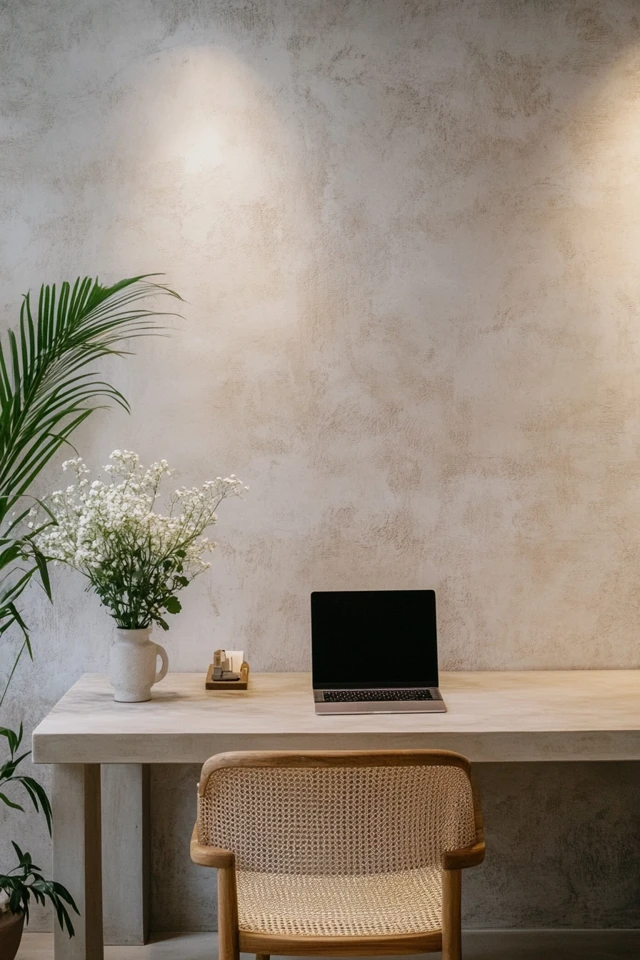
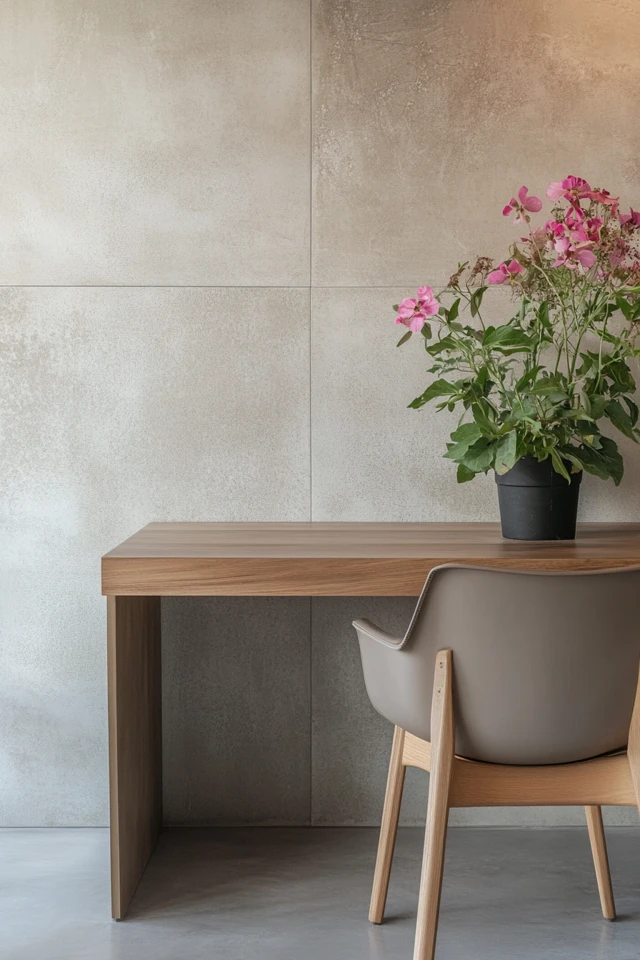
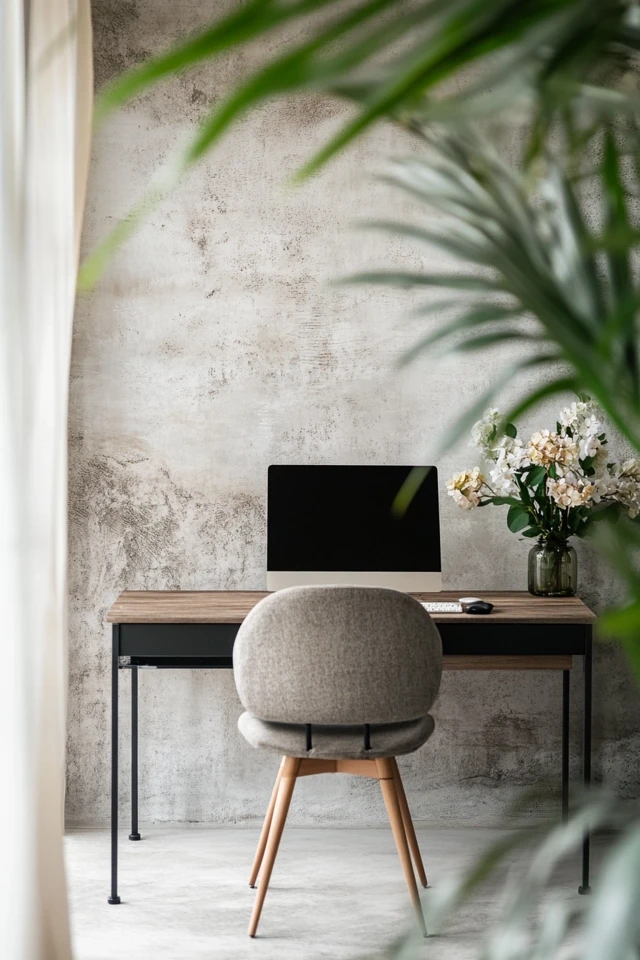
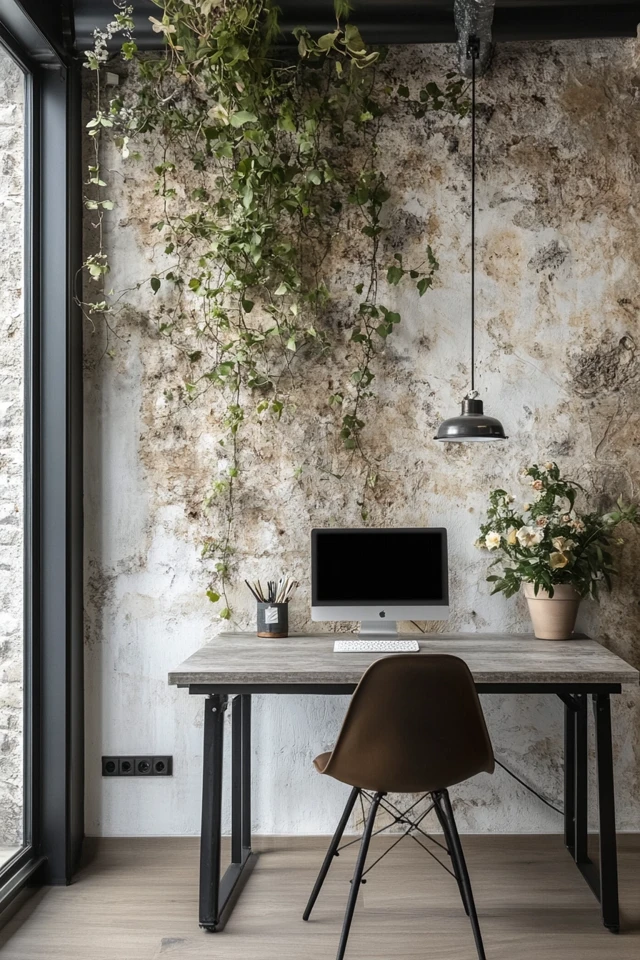
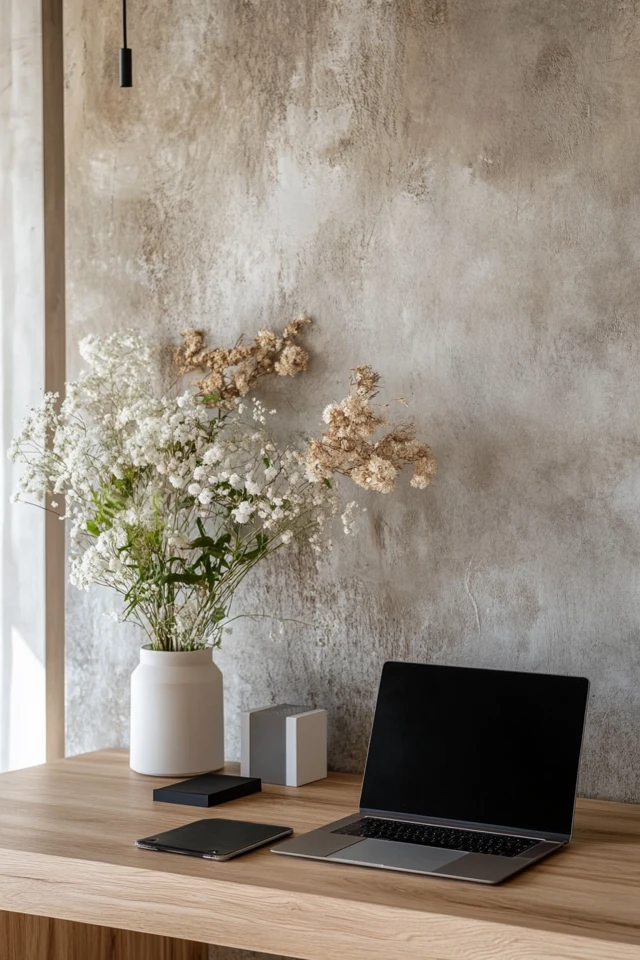
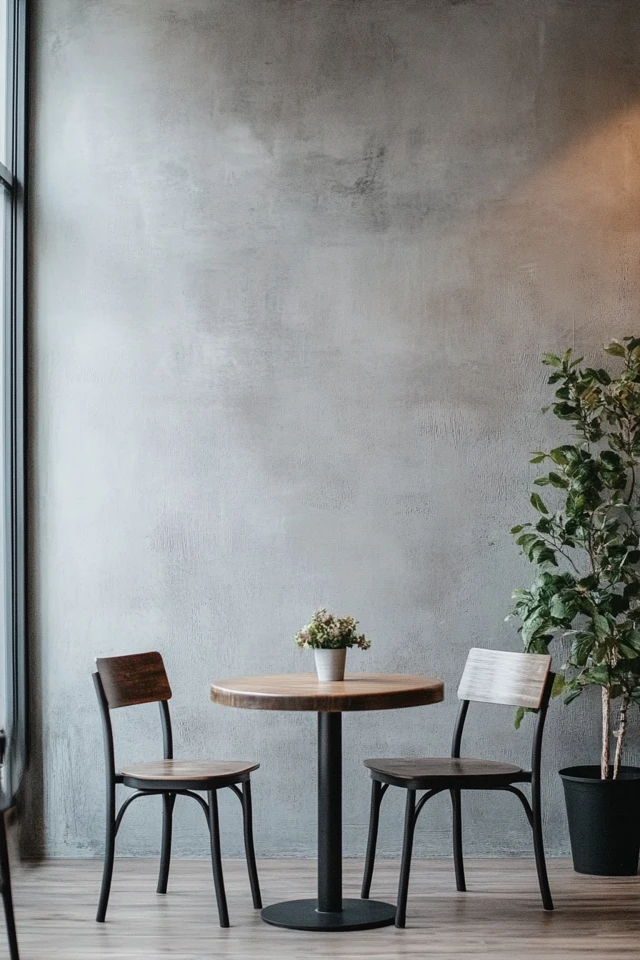
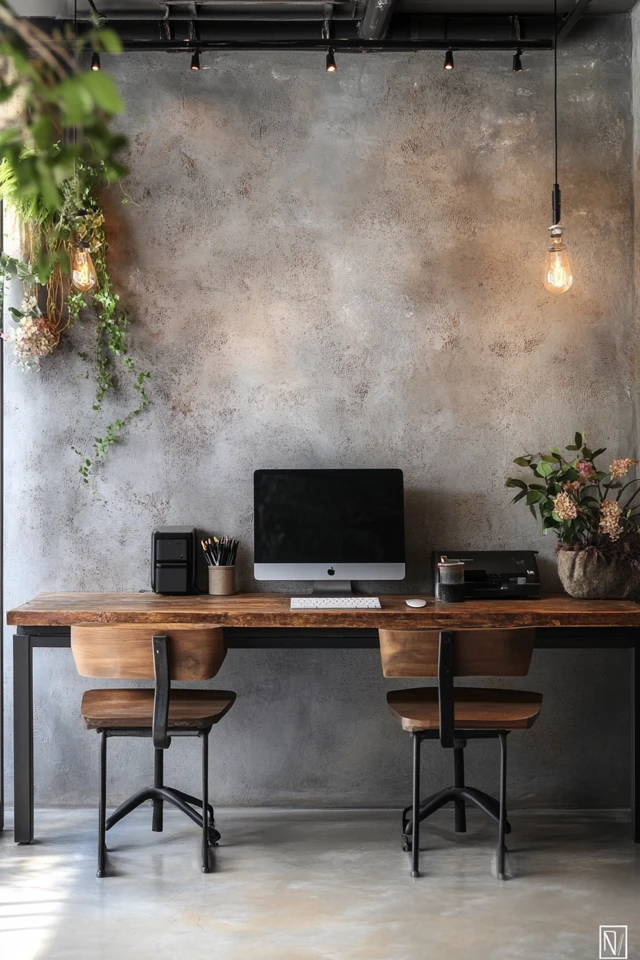
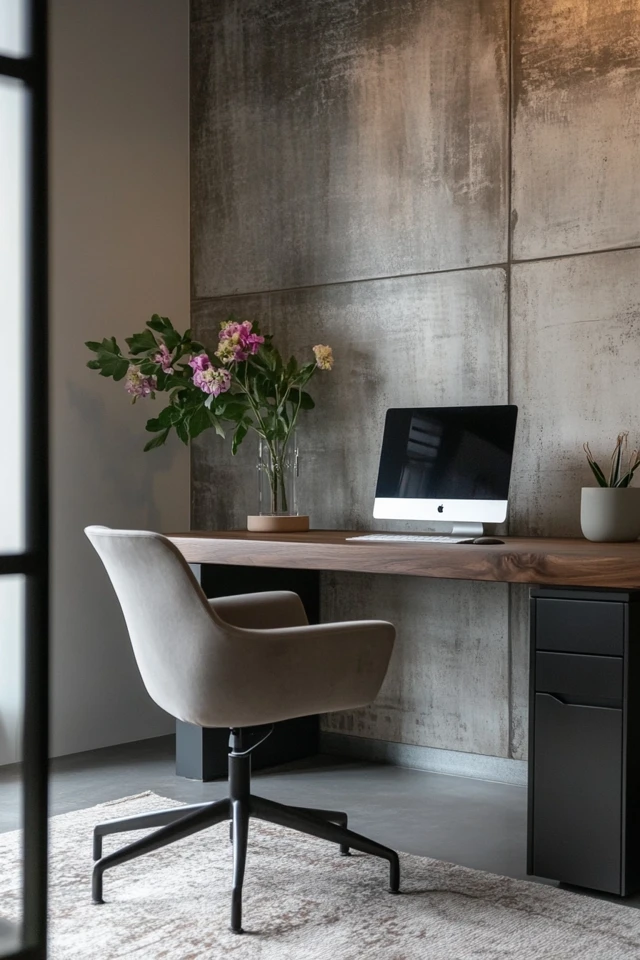
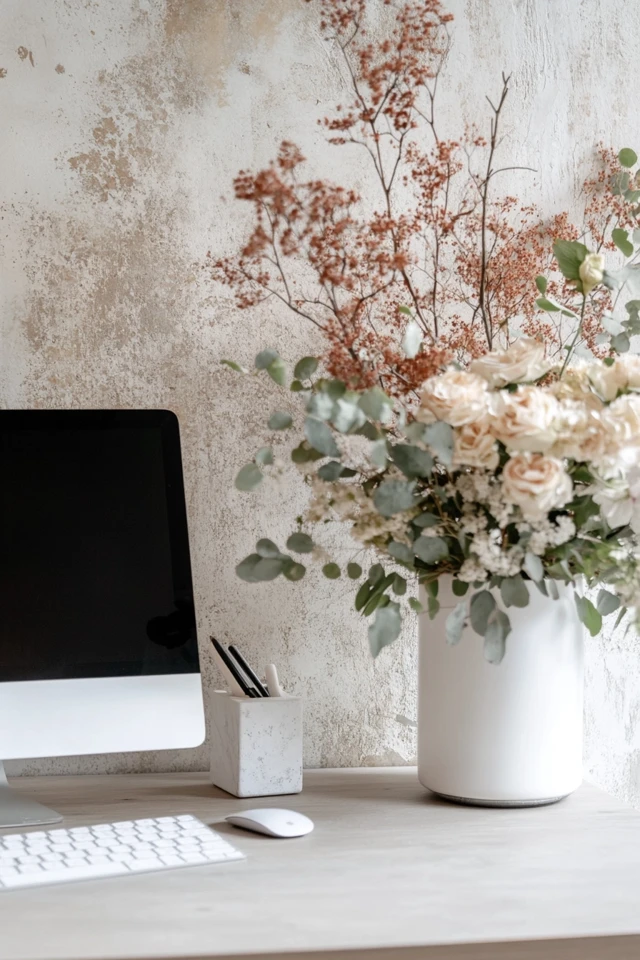
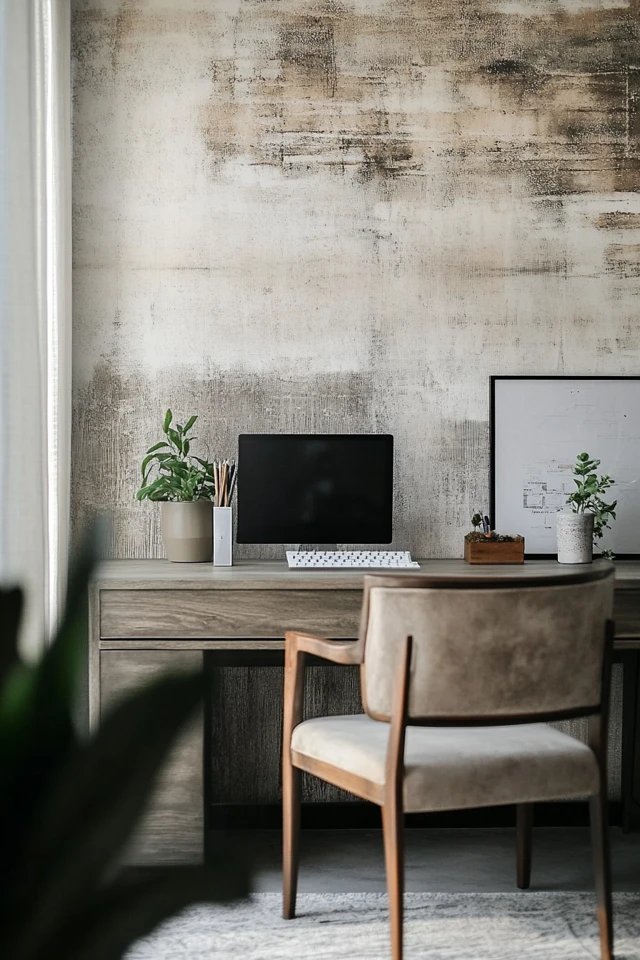
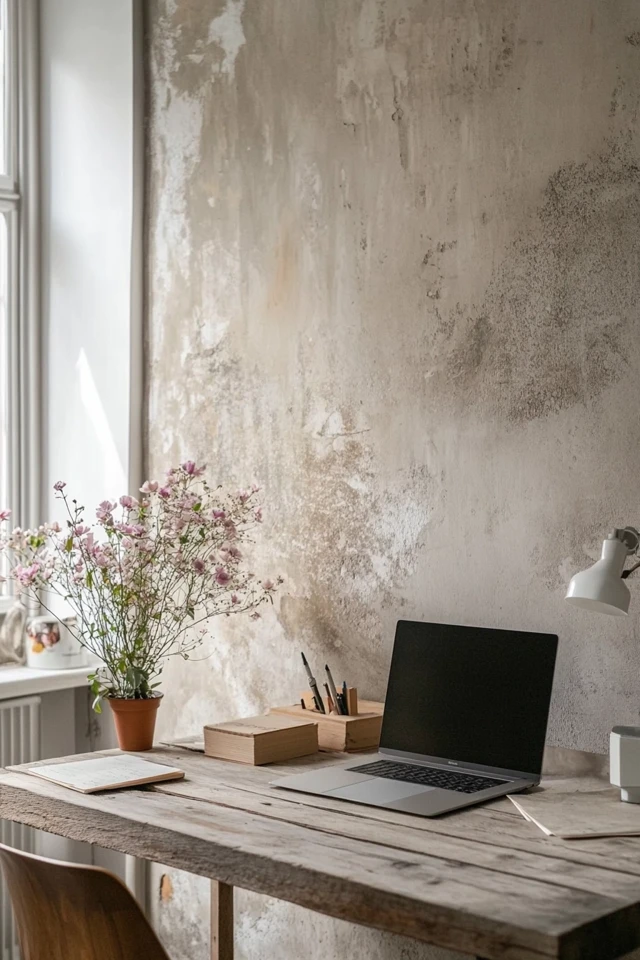
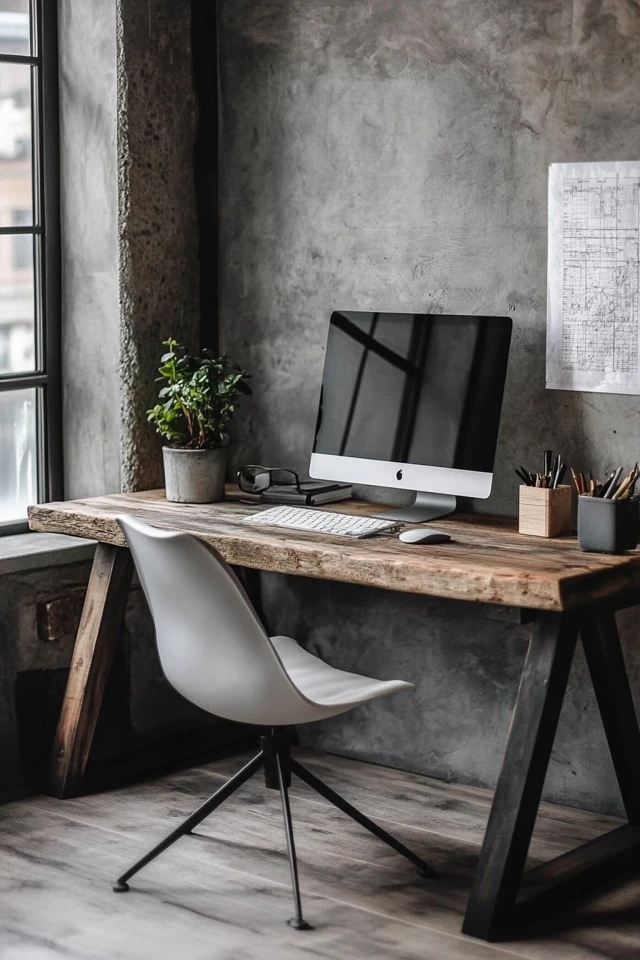
4. Use Smart Storage Solutions
Minimalist workspaces rely on clever storage to keep clutter out of sight.
Storage Ideas
- Drawer Organizers: Keep pens, paperclips, and other small items tidy.
- Floating Shelves: Store books or decor without taking up floor space.
- Storage Bins: Use neutral-toned bins to organize larger items.
Styling Tip:
Label drawers and bins to make it easy to find what you need while keeping the space visually clean.
5. Limit Desk Decor
Decor in a minimalist workspace should be intentional and functional.
Decor Ideas
- A small potted plant to bring life and freshness.
- A single piece of art or a motivational print on the wall.
- A stylish but functional desk lamp.
Example:
A simple white desk with a black lamp, a tiny succulent, and a framed quote creates a focused yet inviting workspace.
6. Optimize Lighting
Good lighting is essential for productivity, and a minimalist workspace should focus on both natural and artificial light.
Lighting Tips
- Position your desk near a window to take advantage of natural light.
- Use a task lamp with adjustable brightness for focused work.
- Avoid harsh overhead lighting; opt for warm, diffused bulbs instead.
Example:
A desk near a sunny window paired with a sleek LED desk lamp creates the perfect lighting balance.
7. Keep Cables Hidden
Visible cables can make even the simplest workspace look cluttered.
How to Manage Cables
- Use cable organizers like clips, sleeves, or trays to keep cords tidy.
- Opt for wireless devices like a keyboard, mouse, and headphones.
- Use a desk with built-in cable management features.
Pro Tip:
Label your cords with tags to quickly identify and manage them when needed.
8. Incorporate Ergonomic Accessories
Comfort is key to maintaining productivity in a minimalist workspace.
Ergonomic Essentials
- Supportive Chair: Look for an adjustable chair with lumbar support.
- Keyboard and Mouse: Use ergonomic models to reduce strain.
- Monitor Stand: Keep your screen at eye level to prevent neck pain.
Example:
Pair a neutral-toned ergonomic chair with a simple desk setup for a workspace that’s both stylish and comfortable.
9. Use a Weekly Reset Routine
Maintaining a minimalist workspace is easier when you dedicate time to reset it regularly.
How to Reset Your Workspace
- Clear your desk of clutter every Friday before the weekend.
- Wipe down surfaces and organize drawers.
- Reassess items to ensure everything still serves a purpose.
Pro Tip:
Set a 10-minute timer to make the reset process quick and efficient.
10. Personalize with Purpose
Minimalism doesn’t mean your workspace has to feel sterile—personal touches can inspire productivity.
Ideas for Personalization
- A favorite photo in a simple frame.
- A meaningful object, like a small sculpture or keepsake.
- A planner or notebook in a color that matches your palette.
Styling Tip:
Keep personal items limited to one or two pieces to maintain a clean, focused look.
How to Maintain a Minimalist Workspace
- Clean as You Go: Avoid letting clutter build up by tidying at the end of each day.
- Reassess Regularly: Periodically evaluate what you use and remove unnecessary items.
- Stay Digital: Use apps and online tools to minimize physical paperwork.
- Embrace Simplicity: Focus on functionality first, and let decor take a backseat.
Conclusion
Creating a minimalist workspace is about finding the right balance between functionality and simplicity. By decluttering, focusing on essentials, and incorporating intentional decor, you can design a space that enhances your productivity and brings calm to your workday.
For me, a minimalist workspace has been a game-changer. It’s not just about how it looks but how it makes me feel—focused, clear-headed, and ready to tackle anything.
So, start small, keep your setup intentional, and let your workspace work for you. With these tips, you’ll create a minimalist workspace that boosts your productivity and inspires your best work.
FAQ
What’s the most important element of a minimalist workspace?
A clutter-free desk is the foundation of a minimalist workspace. Start by removing unnecessary items and focusing on essentials.
How can I make a minimalist workspace feel cozy?
Add warm lighting, a small plant, or a textured throw to your chair to make your workspace feel inviting while staying minimalist.
Can a minimalist workspace be stylish?
Absolutely! Minimalism is all about intentional choices—sleek furniture, neutral colors, and clean lines naturally create a stylish look.
How do I handle paper clutter in a minimalist workspace?
Go digital whenever possible. For physical paperwork, use a filing system or scan and store documents electronically.
How often should I declutter my workspace?
A weekly reset is ideal to keep your workspace clean and organized, but daily tidying can help maintain it effortlessly.

